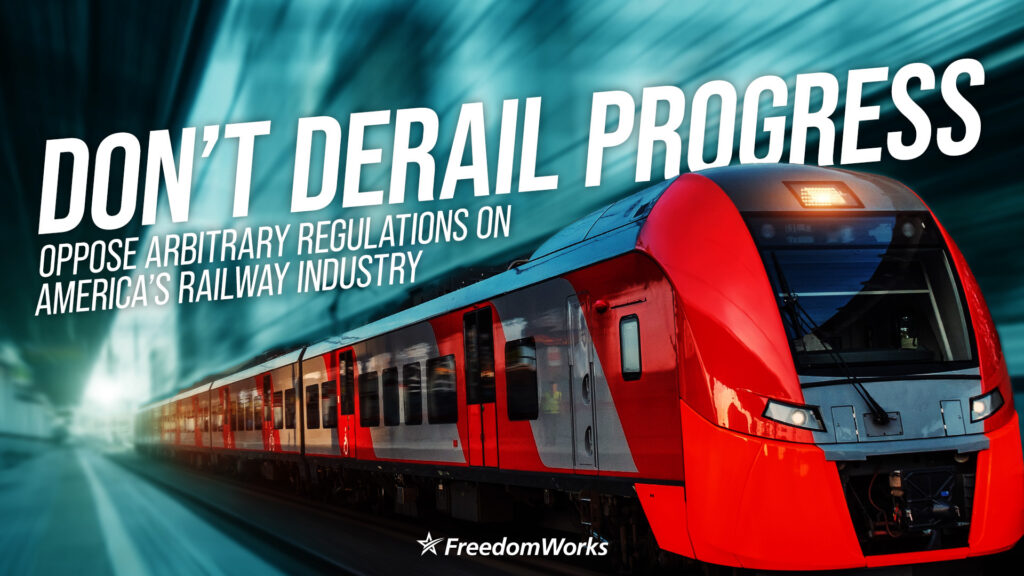Free Market Flying is Still Grounded by Misinformation
In the wake of the United debacle, advocates for increased airline regulation are coming out of the woodwork. Never let a good crisis go to waste, right? They assert that tighter controls, a heavier government hand, are the only solution to the apparent horror of flying created by deregulation in the 1970s.
The first step of arguments for more government involvement is assuming that flying in America is totally unregulated. They say the airlines operate in a quintessential free market. This is a suspect starting point, considering that the American flying experience begins at a government checkpoint in a government-owned facility. No offense to the crucial reforms of the 1970s, but today’s domestic airline industry is anything but “deregulated.”
Brandeis University Professor and American Prospect editor Robert Kuttner claims “airlines are simply not naturally competitive” and infers we face a “ruinous-free-for-all” in the skies by “an unregulated cartel.” He calls for a litany of new rules: barring airlines from filling all seats, pricing based on booking dates and remaining seats, and banning airlines from selling all their open seats and charging for ticket changes and perks (federally-mandated complementary tiny wines?).
Such commandments would do nothing but exacerbate an already over-regulated market and increase prices.
First, the domestic airline market is still tightly controlled by government. Anyone with even a 30,000-foot view of public policy ought to know that. For example, domestic airlines are regulated by cabotage laws, meaning foreign firms cannot compete in our skies. Foreigners can’t even own airlines that operate exclusively between US destinations. That limits competition.
Airlines are further subject to thousands of pages of other federal regulations. According to the Government Printing Office, there are at least 3,356 pages of FAA regulations alone governing commercial air travel under the Aeronautics and Space title of the Code of Federal Regulations. This doesn’t include thousands more pages under regulatory titles like Transportation, Commercial Practices, Commerce and Foreign Trade, Employees’ Benefits, Labor, Internal Revenue, National Defense, etc.
Further, how can one claim domestic air travel is an unregulated free-for-all when the most important part of their service, where they land, is almost wholly controlled and operated by government? According to a recent study from the Cato Institute, “Many U.S. airports are still run in a bureaucratic manner typical of the pre-deregulation era.” The same folks who oversee our deteriorating highways run the airports. This makes it nearly impossible to expand gate capacity in anything resembling an affordable and timely manner. Further, cronyism between government and major airlines limits the number of gates available to new airlines through exclusive-use agreements and contracts that let airlines “veto” new construction. Government favors the building of their own airports by funding these with our tax dollars and, through regulation, barring construction of private airports.
The 1970s “deregulation” of the airlines simply removed the formal ability of the government to bar new entrants, regulate prices, and permit new routes. Now that power is asserted de-facto through cabotage laws, ancillary regulation, and government infrastructure monopolies.
Only one US airline ranks in the global top 25 for service, according to the 2016 World Airline Awards… that was Virgin America at Number 25. And because of cabotage laws, Sir Richard Branson of the U.K. couldn’t prevent Virgin America from being bought by Alaska Airlines (ranked 60th). In short, regulation has relegated competition in the domestic air market exclusively to the losers’ bracket, leaving the bar for good service depressingly low because of the lack of competition.
Regardless, Kuttner claims there is nothing the free market can do about airline service and calls for regulations that would do nothing but increase prices, ignoring the legitimate market functions of various fees for perks and ticket changes. They prevent passengers from subsidizing the behavior and preferences of other passengers. If I just have a backpack why should I pay more so you can fly with two 50-pound suitcases? There isn’t much need to spell these functions out because, amazingly, Kuttner lists practices of Amtrak and Southwest Airlines to defend the cost of all these rules! Amtrak enjoys the full financial backing of the taxpayer and loses hundreds of millions of dollars every year, and Southwest wouldn’t exist as a major carrier without the deregulatory changes of the 1970s.
Obviously the United incident was unacceptable, but it’s not an excuse to abuse the truth. As usual, a freer market will be better for everyone, except the cronies.
Patrick Hedger is the Program Manager for FreedomWorks Foundation’s Regulatory Action Center.



